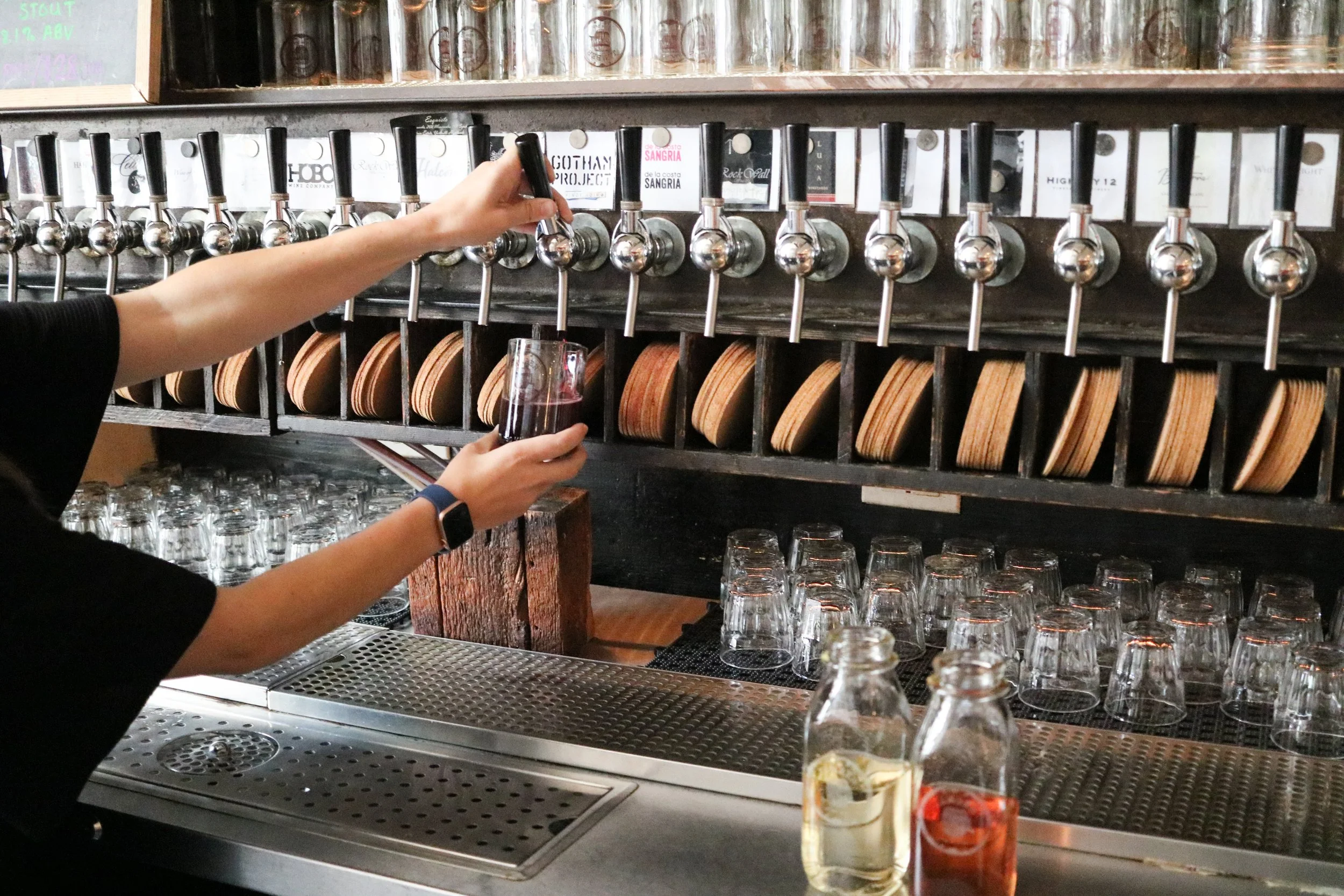WINE ON TAP SYSTEMS: THE FUTURE OF ECO-FRIENDLY WINE SERVICE
If you run a restaurant, bar, or tasting room, you know the pressure to “go green” is real. Guests are asking tougher questions, operators are watching costs, and everyone’s looking for ways to make sustainability feel practical, not overwhelming.
That’s where wine on tap comes in. At Free Flow Wines, we’ve spent years helping hospitality businesses rethink wine service, and the results speak for themselves: less waste, lower emissions, fresher wine, and happier guests.
Why Bottles Hold You Back
We all know glass bottles are iconic. But the reality? They’re one of the biggest contributors to wine’s carbon footprint.
- Bottle production accounts for up to 29% of a wine’s total emissions because glass requires extreme heat to manufacture.
- Transporting bottles adds another 10–13%, thanks to weight and bulk.
- Recycling is limited - only 31% of glass bottles in the U.S. are recovered, and even then remelting still consumes significant energy (EPA).
- Spoilage after opening means wasted product and wasted embedded emissions from farming, packaging, and shipping.
In other words, every ounce poured down the drain is more than lost revenue - it’s added environmental cost.
The Hidden Costs of Bottled Wine: What You Probably Didn’t Notice
When people picture wine packaging, they think of the glass bottle. But bottles come with an entire supply chain of extras that quietly drive-up emissions.
Labels, foils, corks, and caps
Each bottle requires multiple single-use components, many of which aren’t recyclable. These materials are manufactured, shipped, and discarded - without ever adding value to the guest experience.
Cardboard cases
Most bottles arrive in boxes that are quickly flattened and tossed, creating additional waste streams.
All of this packaging is produced, shipped, and disposed of, even though guests never see it.
Why Recycling Isn’t the Full Answer
Glass is 100% recyclable in theory, but in practice, recycling doesn’t erase its footprint.
Low recovery rates
Only about 31% of bottles in the U.S. actually get recycled. Many end up in landfills.
High re-melting energy
Even when bottles are recycled, re-melting consumes about 70% of the energy required to make new glass (EPA).
Contamination issues
Labels, foils, and mixed materials reduce recycling efficiency, meaning much of the bottle stream still goes to waste.
The result: recycling helps, but it doesn’t solve the underlying problem of carbon-heavy glass.
Why Hospitality Operators Love Wine on Tap Systems
Now let’s flip the script. A single stainless steel keg replaces 26 bottles per fill and keeps doing so for decades. Over its lifetime, one keg can keep thousands of bottles, corks, foils, and cartons out of landfills.
At Free Flow Wines, we see operators cut their wine packaging and transportation carbon footprint by at least 76% when switching from bottles to reusable steel kegs (Free Flow Wines Sustainability Report). That’s the cumulative effect of:
- Fewer bottles manufactured (no glass, corks, foils, or cartons).
- Lower freight emissions (kegs are 28% lighter and 68% more compact).
- Less waste in landfills (steel kegs are 100% recyclable and reusable).
- Zero spoilage thanks to inert gas systems that preserve freshness for weeks.
And because our team handles kegging at scale, the process is seamless for operators. No complicated logistics, just results.
Draft Technology That Makes It Possible to Serve Wine on Tap
Wine on tap only works when paired with the right equipment. Industry leaders like Micro Matic, Perlick, and Taprite provide the draft systems that keep every pour consistent and fresh.
Micro Matic have particularly been pushing draft technology beyond beer. From wine and cocktails on tap to non-alcoholic beverages, they’re rethinking how sustainable dispensing can work across the entire beverage industry.
When you pair that equipment with Free Flow Wines’ kegging and logistics expertise, you get a system that’s both environmentally responsible and operationally simple.
Guests Notice the Difference in Your Story When You Care
This isn’t just about cutting carbon - it’s about the story you get to tell your guests. Research shows 73% of diners will pay more for sustainable options.
By pouring wine on tap with Free Flow Wines, operators can:
- Serve fresher wine, glass after glass.
- Save valuable backroom space.
- Demonstrate a measurable commitment to sustainability.
Guests will notice the difference in both taste and experience.
The Free Flow Advantage Is Innovation for the Hospitality Industry and the Environment
At Free Flow Wines, we don’t just provide a service - we partner with operators to make sustainability simple. From kegging and bulk shipping to logistics and training, we’re proud to help businesses cut their carbon footprint while serving better wine.
🍷 Ready to upgrade your wine program? Contact Free Flow Wines today and see how wine on tap can work for your business, your guests, and the planet.

